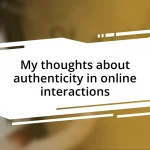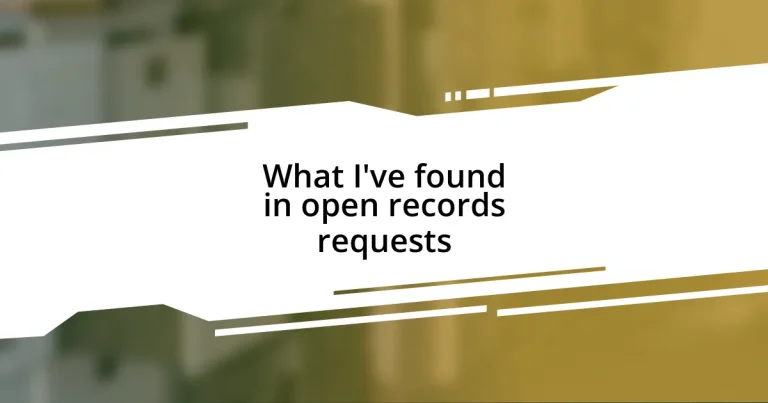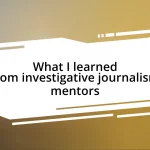Key takeaways:
- Open records requests promote transparency, accountability, and public engagement, empowering citizens to influence government actions.
- Interpreting the information from these requests can be challenging, requiring effort to understand complex terminology and context.
- Successful case studies, like community efforts uncovering inconsistencies or journalist investigations revealing conflicts of interest, highlight the impact of transparency on policy changes.
- Effective requests benefit from specificity, politeness, and timely follow-ups, which can enhance response rates and outcomes.
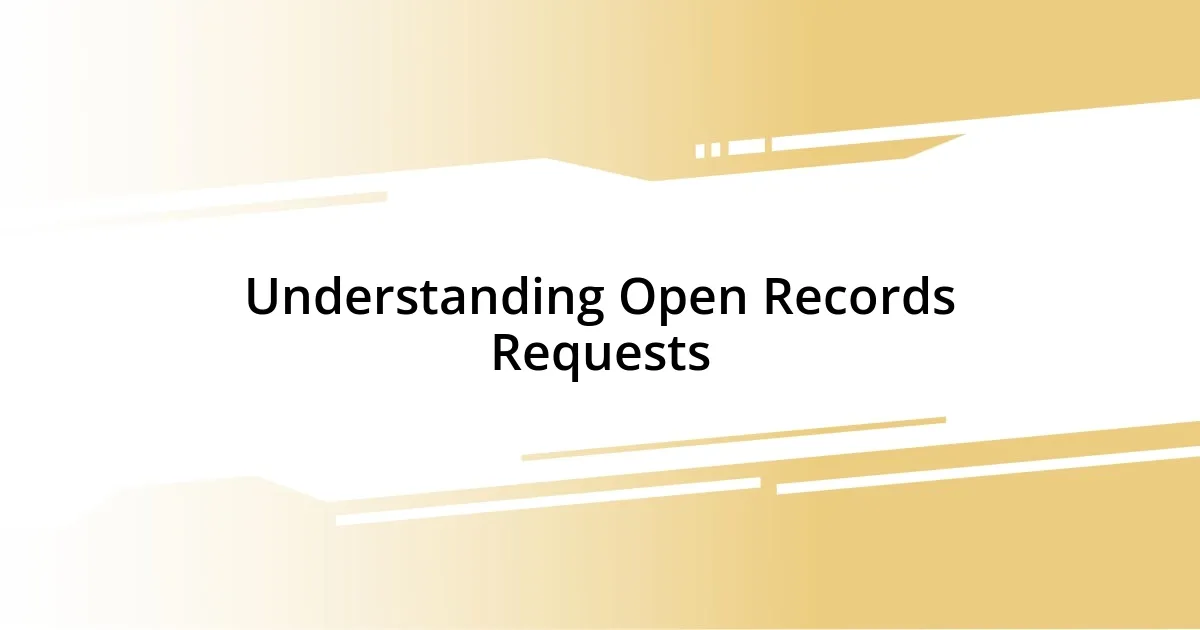
Understanding Open Records Requests
Open records requests, often referred to as FOIA requests in the United States, empower individuals to access government documents and information. I remember the first time I submitted one; I was anxious, wondering if my request would even be acknowledged. The thrill of waiting for a response felt like a rollercoaster ride, reflecting my anticipation to uncover information that should belong to the public.
The process can be complex, full of legal terminology and bureaucratic nuances. Have you ever felt overwhelmed by this kind of red tape? I certainly have. Understanding the specifics—like which records are exempt and how to follow up—helps demystify the process. It’s not just about asking for information; it’s about being prepared to navigate a system that sometimes feels designed to keep you at bay.
When I finally received my documents, I was filled with a sense of accomplishment. It was more than just information; it felt like reclaiming a piece of public discourse. I realized that each request is not only an opportunity for individual discovery but also a step towards greater transparency in our society. Isn’t it fulfilling to know that you can influence how information flows?
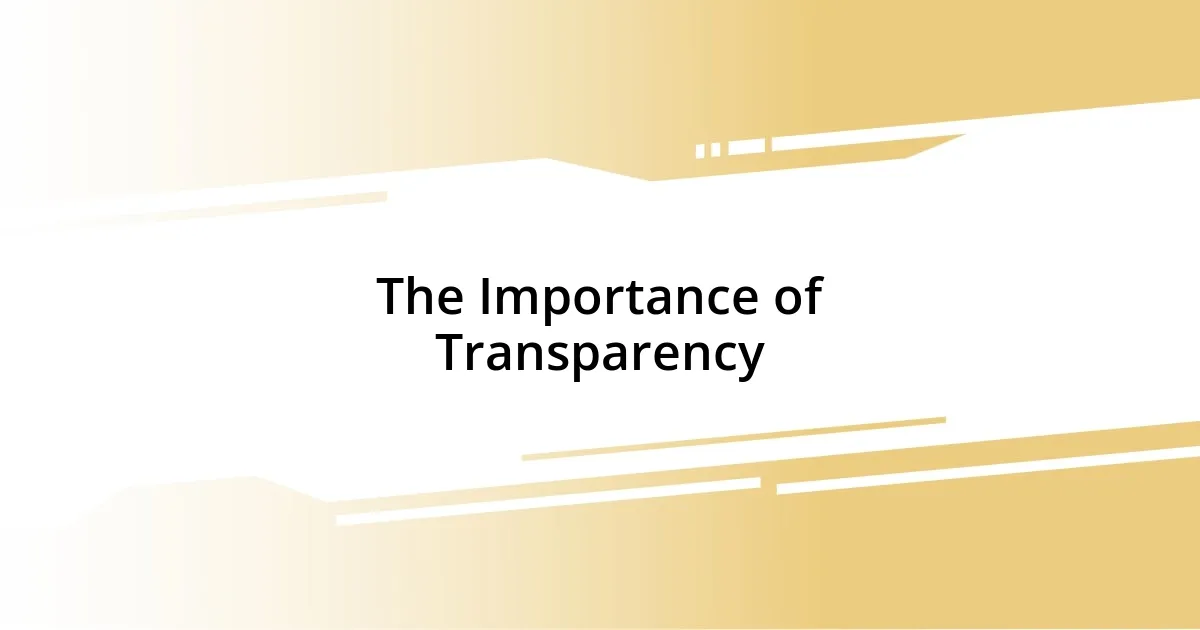
The Importance of Transparency
Transparency in government is crucial for fostering trust within communities. When citizens can access public records, it encourages accountability and helps hold officials responsible for their actions. I’ve seen firsthand how transparency can transform skepticism into trust; when local government meetings are open to scrutiny, it sends a clear message that leaders value the opinions of their constituents.
Here are a few reasons why transparency matters:
- Accountability: It ensures that governments operate in the best interest of the public.
- Public Engagement: Accessible information empowers citizens to participate more actively in democracy.
- Informed Decision-Making: Transparency equips the community with knowledge necessary for critical discussions and decisions.
Having witnessed the backlash against opaque practices, I’ve learned that when information is readily available, it can break down barriers and foster a more informed populace. People become more engaged when they see the direct impact of their voices through informed advocacy.
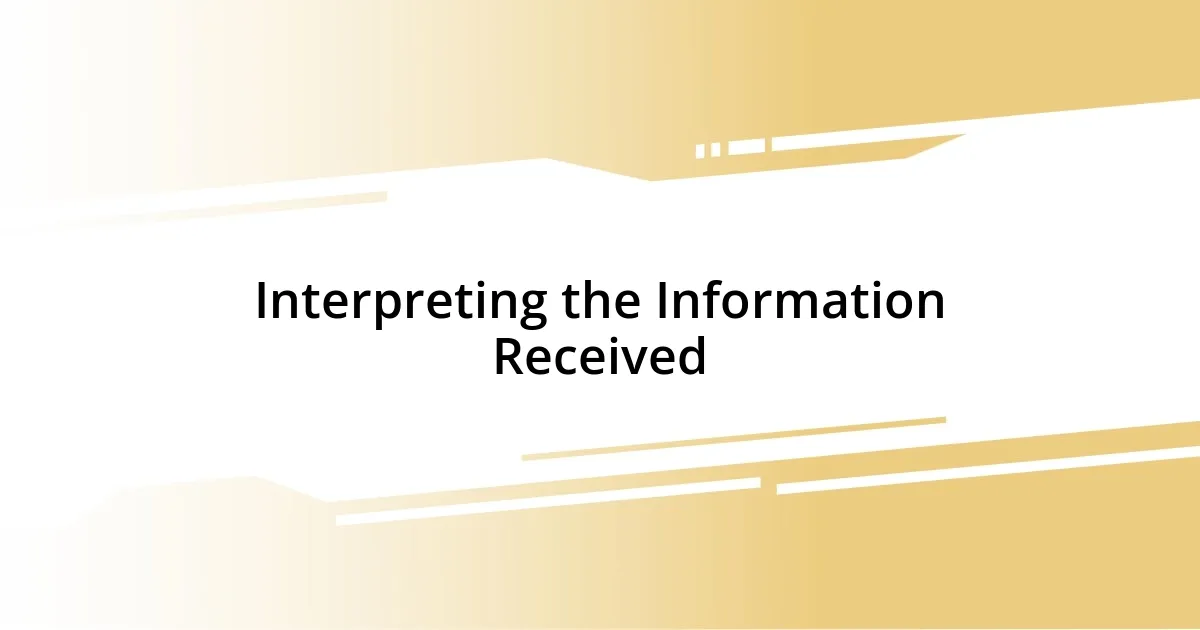
Interpreting the Information Received
Interpreting the information received from an open records request can often feel like piecing together a jigsaw puzzle. When I first sifted through my documents, I was struck by the sheer volume of data. Each piece had its own context, and I spent hours trying to connect the dots. It wasn’t just about reading the words; it required understanding the significance behind them. It’s like being a detective, where every detail matters and shapes the larger picture.
Sometimes, the records can be cryptic, filled with jargon and abbreviations. I remember coming across terms that left me puzzled—like when I had to look up what “ex parte” meant. This is a legal term referring to communication with one party without the other present—definitely not something I had encountered before my research. It reminded me of the importance of familiarizing myself with the language of the documents I requested. Have you ever faced similar challenges? I certainly found that taking the time to learn made a significant difference in grasping the information.
The emotional journey of interpreting these records can vary. Some documents can be enlightening, revealing truths that lead to a strong sense of empowerment. Other times, however, they might present unsettling realities that challenge your perceptions. I recall reading emails that revealed a lack of responsiveness from officials—a bitter realization that stoked my resolve to seek change. Balancing both excitement and frustration is a part of this process, but I believe it ultimately fortifies our collective voice.
| Aspect | Personal Experience |
|---|---|
| Puzzle-Like Complexity | Hours spent connecting details, like a detective. |
| Cryptic Terminology | Encountered unfamiliar terms like “ex parte.” |
| Emotional Reactions | Feels empowering yet can reveal disheartening truths. |
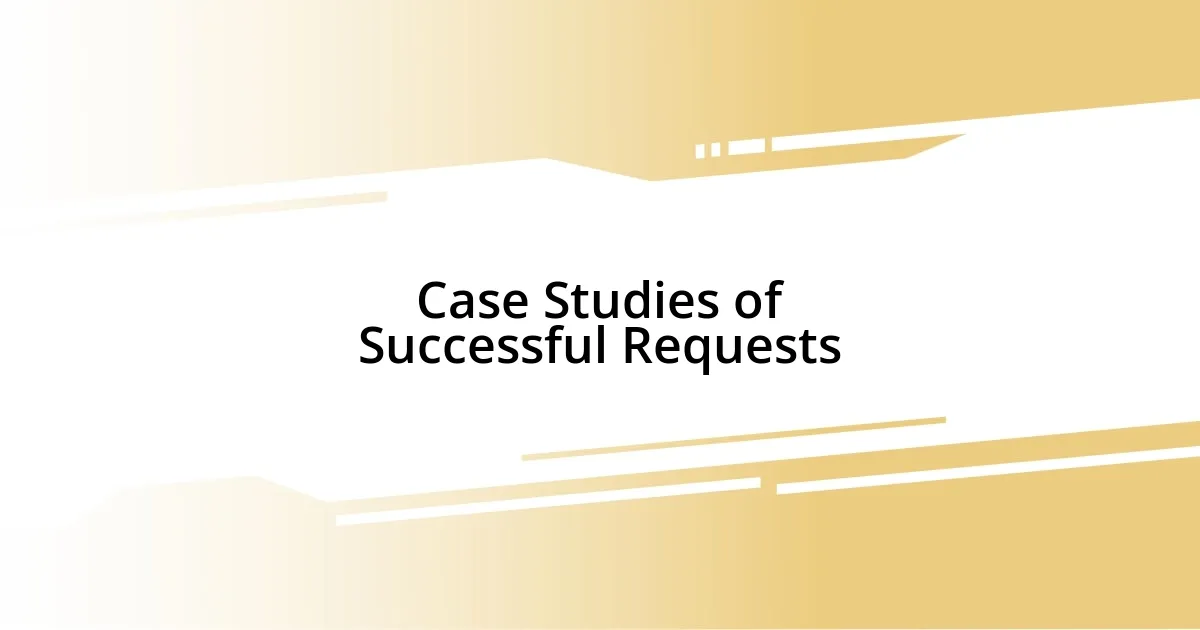
Case Studies of Successful Requests
One striking case I encountered involved a community that successfully requested police records regarding a controversial local incident. As the community gathered a wealth of information, they uncovered inconsistencies in the official narrative. It was eye-opening to see how organized community efforts led to transparency that spurred policy changes within the department. Can you imagine the sense of empowerment that comes from shedding light on a situation that once felt obscured? It was like watching a detective unravel a mystery.
In another instance, a journalist utilized open records requests to access emails between local officials and developers about a proposed housing project. The findings revealed discussions that hinted at conflicts of interest, a revelation that triggered public outrage and a thorough investigation. It reminded me of the vital role journalism plays in ensuring accountability. Have you ever felt that thrill when information directly impacts your community? The ability to connect the dots through these documents can be exhilarating!
I also remember a nonprofit group I collaborated with that successfully requested financial records of a local government grant program. The records exposed mismanaged funds and discrepancies that shocked many. With this information, the group was not only able to advocate for better oversight but also sparked broader community discussions about resource allocation. It was empowering to see how mere documents could fuel dialogue and drive change. If I hadn’t felt that spark before, I certainly did then!
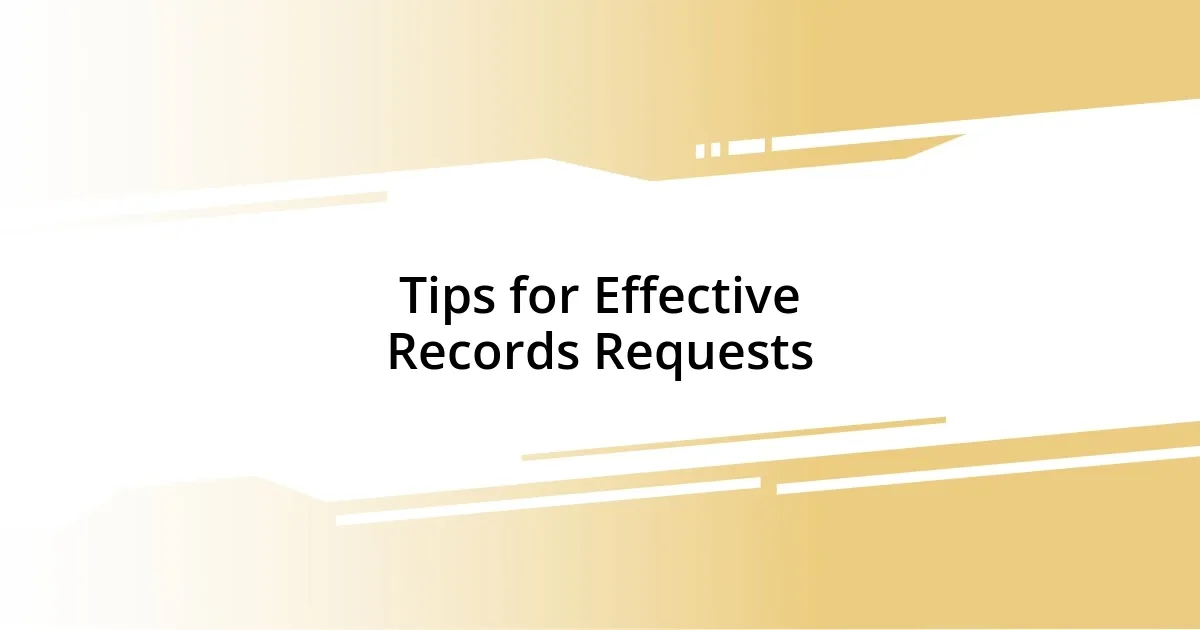
Tips for Effective Records Requests
When preparing to submit your records request, clarity is key. I’ve learned that being specific about what you want makes all the difference. For instance, instead of asking for “any emails” related to a project, I would specify, “emails from last January regarding the budget allocation.” This focused approach not only saves time but also increases the chances of getting the information you need. Have you ever felt lost in a sea of documents? Well, specificity can act like a lighthouse guiding you to shore.
Another tip is to be polite and professional in your communication. When I first started making requests, I sometimes let my frustration seep into my emails. However, I quickly noticed that a respectful tone often yielded better responses. A simple “thank you” can go a long way and might even prompt officials to prioritize your request. Reflecting on my own experiences, I’ve often found that a little kindness helped me build rapport with the people behind the records.
Lastly, keeping track of deadlines and follow-ups is essential. After submitting my first request, I marked my calendar for the expected response time. But when I didn’t hear back, I was unsure what to do. I later realized that sending a friendly reminder not only showed my continued interest but often expedited the processing of my request. Have you found follow-up strategies that work for you? From my perspective, patience combined with persistence is a powerful tool in navigating open records requests.








